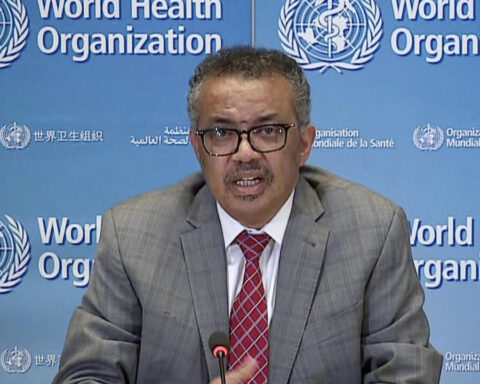World leaders and leading public health experts have signed a declaration seeking an end to cervical cancer.
The declaration was formally launched in Geneva on Monday, May 22, at the World Health Assembly.
In a statement mailed to DA News on Monday, May 22, 2023, said as of the time of the meeting, 1200 global health leaders and advocates representing over 100 countries, including former Prime Minister of New Zealand Jacinda Ardern, Chief Executive Officer of Amref Health Africa Githinji Gitahi, President of the International Federation of Obstetrics and Gynecology (FIGO) Jeanne Conry, and President-elect of the International Pediatric Association Naveen Thacker, have signed the pact.
Twelve leading public health experts, including Nigeria’s former Minister of Health, Isaac Adewole, co-lead the team that initiated the pact.
According to the statement “Human papillomavirus (HPV) causes the vast majority of cervical cancer cases. At least, 342,000 women die each year from the disease. More than 90 percent of the victims live in low- and middle-income countries,”.
The new declaration to eliminate cervical cancer as stating that, “As physicians, nurses, health professionals, community health workers, patient advocates, scientists, and public health experts, we believe that eliminating cervical cancer is both achievable and an essential step in advancing the health and well-being of girls, women, families, and communities around the world.
“We call for urgent action to make cervical cancer elimination a global priority, with high-level commitment and resources to make it a reality. No woman should lose her life to cervical cancer when we have the tools to prevent it, and, especially when diagnosed early, to treat it.”
According to the WHO, Nigeria records 12,000 cases of cervical cancer annually, out of which 7,900 die.
Cervical cancer is preventable and treatable but is still the second most common cancer among women and most common among women ages 15-44.
WHO said a dose of the HPV can now be effective as two doses earlier recommended for administration.
It blamed the worsening cases of the disease on inequity in HPV vaccines across countries and the recent COVID-19 pandemic.
WHO’s Director-General, Tedros Ghebreyesus highlighted the organization’s commitment to eliminating cervical cancer and urged member states to scale up services.
“But new research on the efficacy of a one-dose HPV vaccine regimen and progress toward elimination in several countries are several of the factors that are bringing the world closer to eliminating cervical cancer,” the agency said.
By Dare Akogun






